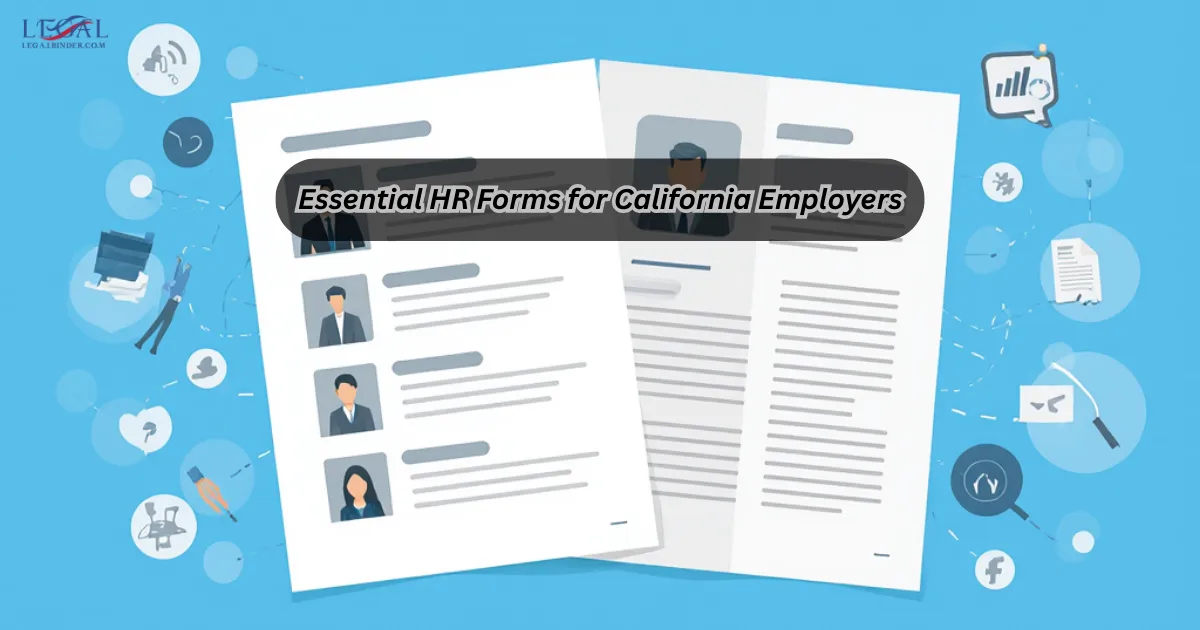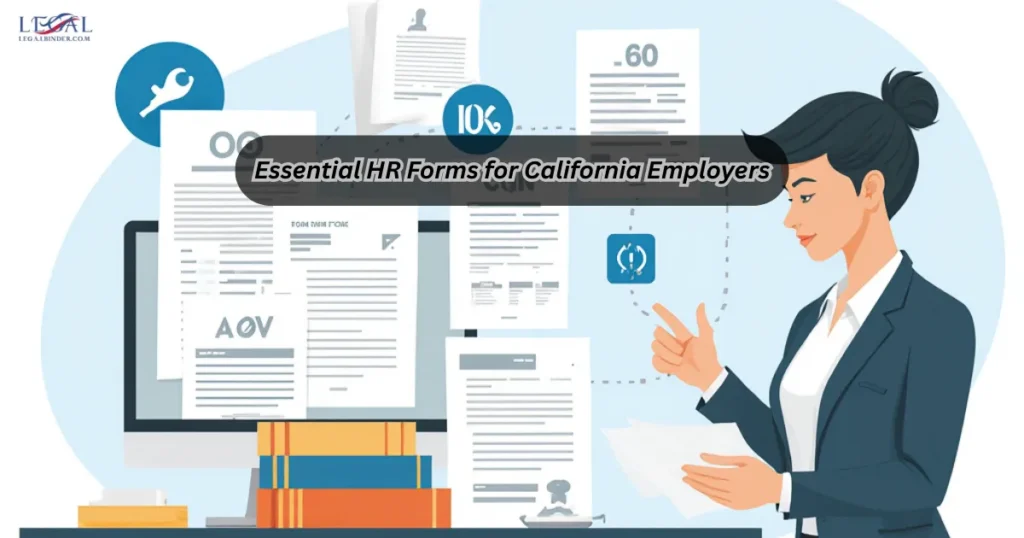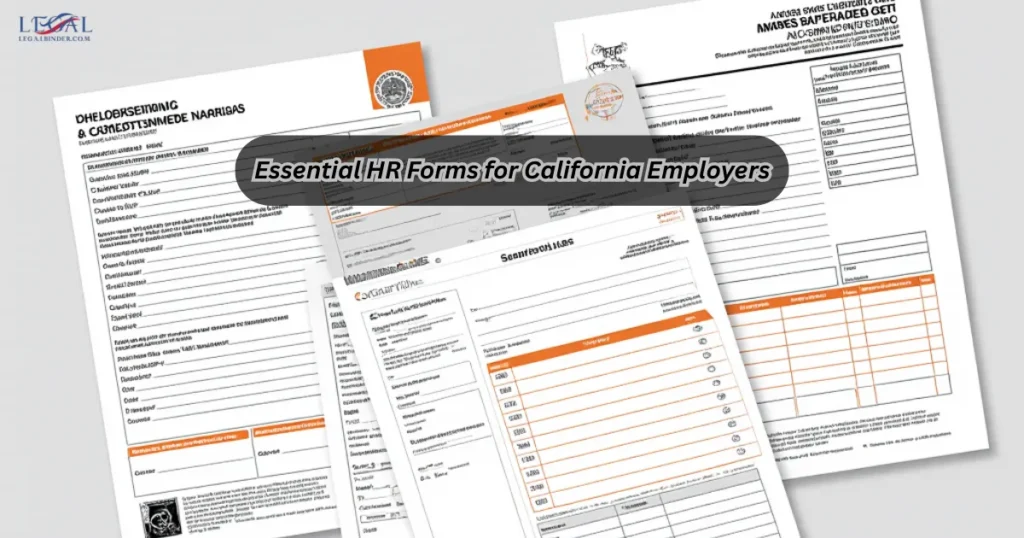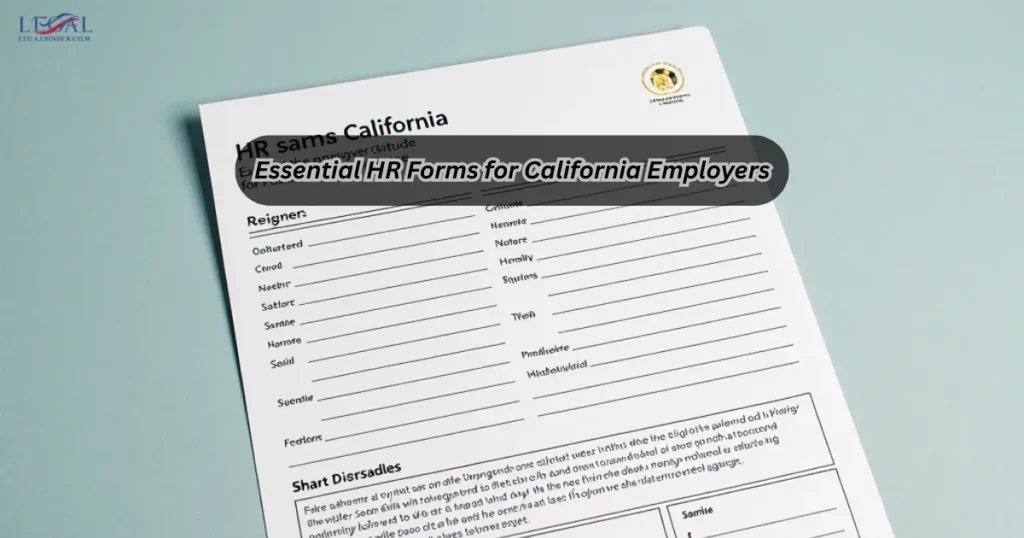Physical Address
304 North Cardinal St.
Dorchester Center, MA 02124
Physical Address
304 North Cardinal St.
Dorchester Center, MA 02124

Managing employees in California isn’t just about building a strong team—it’s also about ensuring you meet the state’s strict legal requirements. As an employer, you may sometimes feel overwhelmed by the sheer number of forms, policies, and compliance rules you need to follow. Missing even a single HR form in California can result in penalties, lawsuits, or strained relationships with your workforce.

Think of HR forms not as bureaucratic paperwork but as tools that protect both you and your employees. They bring clarity, set expectations, and create a fair foundation for the workplace. In this guide, you’ll learn exactly which forms are essential, why they matter, and how you can confidently manage your responsibilities as a California employer.
For more legal guides tailored to California employers, visit our homepage.
HR forms are legally required or recommended documents that govern employee relations, hiring, benefits, and compliance. They ensure that you, as an employer, operate within the boundaries of California and federal law.
California has some of the most employee-friendly laws in the U.S. This means certain forms and policies are mandatory at the state level, in addition to federal requirements.
Below is a breakdown of the most important HR forms you must maintain.

California law changes frequently. Employers should regularly review updates from:
Always provide employees with copies of signed forms and encourage questions about policies or rights.
HR forms work hand-in-hand with employment agreements. Ensure consistency between what’s written in the contract and what’s outlined in compliance documents.
Yes. W-4 is for federal withholding, while DE 4 is required for California state taxes.
Within 20 days of the hire date to the EDD’s New Employee Registry.
Yes, California requires employers to distribute anti-harassment policies and maintain signed acknowledgments.
You could face penalties, fines, or legal disputes, depending on the form and violation.
You can find them through the California DIR, EDD, or USCIS.
As a California employer, mastering HR forms is essential for staying compliant and protecting your business. Each document—whether it’s tax-related, policy-based, or tied to employee rights—serves as a safeguard that ensures fairness, legal compliance, and transparency. By keeping your forms organized, updated, and accessible, you’ll avoid unnecessary risks while fostering trust with your employees.

Don’t wait until a compliance issue catches you off guard. Start reviewing your HR forms today and build a system that supports both your business and your workforce. For more resources, visit our homepage and stay updated with the latest California employment laws.